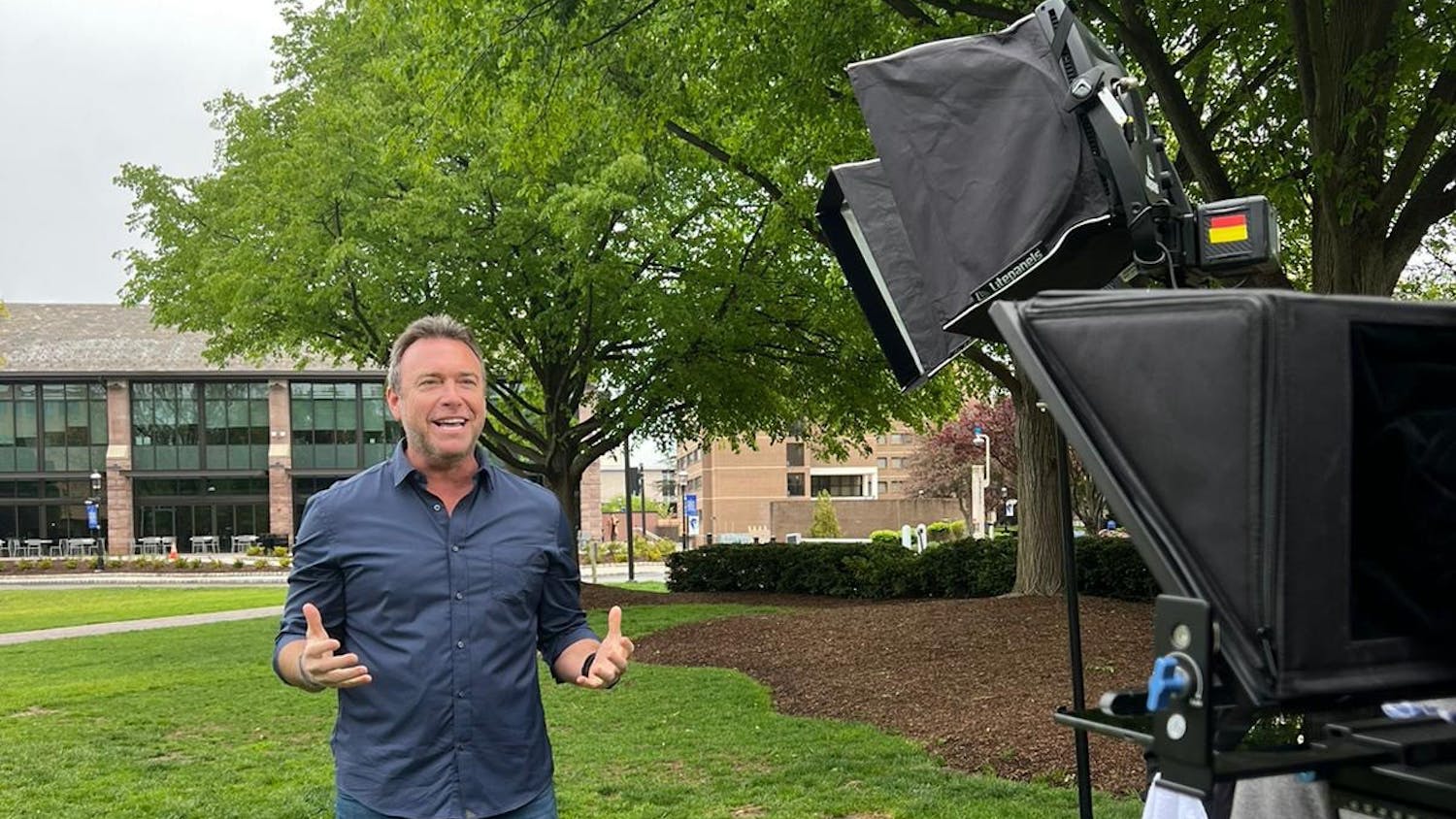[caption id="" align="alignnone" width="390"] DebtSafe Facebook[/caption]
The fear of graduating with debt is a fear that most college students face.
Debt accumulates over the length of a college student’s career, and by the time they graduate, it can feel like debt is inescapable.
Many Seton Hall University students will graduate with debt and so the fear grows.
Whether or not a student graduates with loans, the fear of going into “the real world” and having actual financial responsibilities can cause anxiety.
Ruth Novello, the senior director of financial aid at SHU, said that 96 percent of undergraduate students receive some form of financial assistance.
Novello added that debt can easily accumulate and affect a student’s finances in the future.
“Once a student graduates and starts in the workforce, they must budget their salaries accordingly,” Novello said. “They have to consider not only the monthly payment for the loans, but also rent, utilities and perhaps car payments, insurance expenses, etc. The amount of student debt will impact how much a person can afford to spend on their day to day life.”
Novello said that students who borrow money at SHU, typically borrow about $25,000 in federal loans for their undergraduate study.
That is a large amount of money and students need to be wise about how long they pay off their debt.
Novello added that by borrowing $25,000, students have to pay approximately $257 a month for ten years to pay off their debt completely.
Students need to be educated about how they will pay off their debt to be prepared once they graduate.
Novello said that she believes some student are unprepared to pay off their debt because students do not always think of the end results when they are in college.
She added that the loans that students have accumulated interest and that can add up very quickly.
Although debt can be a daunting concept, it is also a method of paying for school that many students utilize.
SHU offers various types of financial aid such as need-based grants, Title IV programs and New Jersey state aid which includes a Tuition Aid Grant and the Educational Opportunity Program.
When students use the Federal Direct Loan program, they receive an email that advises them of the Exit Counseling website which educates students on how to pay off their loans with repayment plans.
Students are offered an option of making payments when they are enrolled.
Novello said that was highly encouraged because it will reduce the amount of interest that is accumulating on the loan and lessen the amount of years a student will have to be in repayment.
She also spoke about SALT, which helps students who borrow money.
According to the SALT website, it is an online tool for students and their families to help them organize their loans, set up budgets, calculate the best repayment plan for the individual student, advise the student of their lender and loan servicer and when to start repaying the various loans.
Haley Zenna can be reached at haley.zenna@student.shu.edu.
DebtSafe Facebook[/caption]
The fear of graduating with debt is a fear that most college students face.
Debt accumulates over the length of a college student’s career, and by the time they graduate, it can feel like debt is inescapable.
Many Seton Hall University students will graduate with debt and so the fear grows.
Whether or not a student graduates with loans, the fear of going into “the real world” and having actual financial responsibilities can cause anxiety.
Ruth Novello, the senior director of financial aid at SHU, said that 96 percent of undergraduate students receive some form of financial assistance.
Novello added that debt can easily accumulate and affect a student’s finances in the future.
“Once a student graduates and starts in the workforce, they must budget their salaries accordingly,” Novello said. “They have to consider not only the monthly payment for the loans, but also rent, utilities and perhaps car payments, insurance expenses, etc. The amount of student debt will impact how much a person can afford to spend on their day to day life.”
Novello said that students who borrow money at SHU, typically borrow about $25,000 in federal loans for their undergraduate study.
That is a large amount of money and students need to be wise about how long they pay off their debt.
Novello added that by borrowing $25,000, students have to pay approximately $257 a month for ten years to pay off their debt completely.
Students need to be educated about how they will pay off their debt to be prepared once they graduate.
Novello said that she believes some student are unprepared to pay off their debt because students do not always think of the end results when they are in college.
She added that the loans that students have accumulated interest and that can add up very quickly.
Although debt can be a daunting concept, it is also a method of paying for school that many students utilize.
SHU offers various types of financial aid such as need-based grants, Title IV programs and New Jersey state aid which includes a Tuition Aid Grant and the Educational Opportunity Program.
When students use the Federal Direct Loan program, they receive an email that advises them of the Exit Counseling website which educates students on how to pay off their loans with repayment plans.
Students are offered an option of making payments when they are enrolled.
Novello said that was highly encouraged because it will reduce the amount of interest that is accumulating on the loan and lessen the amount of years a student will have to be in repayment.
She also spoke about SALT, which helps students who borrow money.
According to the SALT website, it is an online tool for students and their families to help them organize their loans, set up budgets, calculate the best repayment plan for the individual student, advise the student of their lender and loan servicer and when to start repaying the various loans.
Haley Zenna can be reached at haley.zenna@student.shu.edu.

Comments




